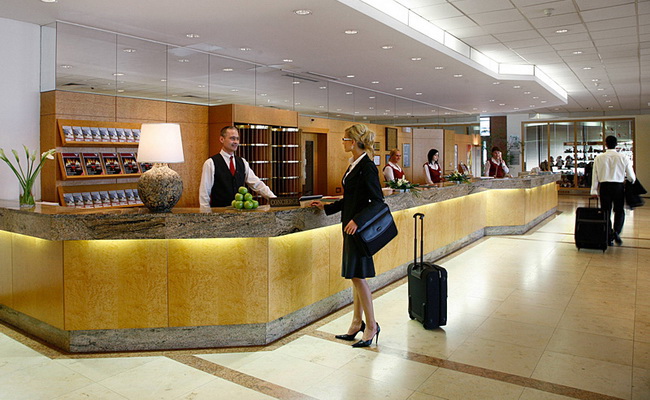The rise of Airbnb has been meteoric, driven by economic turbulence and pandemic-era restrictions. This has made it impossible for hotels to dominate as they once did, and led many of them to struggle. Can they still thrive? Yes — but they need to operate smartly.
The cultural cachet of hotels has never fallen, but the desire to use them certainly has, and Airbnb has much to do with the drop in interest. Depending on the circumstances, a stay at an Airbnb location can easily seem more exciting, flexible, or affordable. This makes life much more complicated for hoteliers. With huge bills to pay, how can they attract more custom?
In this post, we’re going to look at four tools that hotels can use to compete in a market now cornered by Airbnb hosts. Well, tool types: more specifically, types of software solutions. Everything operates online these days, and accessibility is a key part of the Airbnb equation. If hoteliers are to garner fresh interest, they must find modern and efficient ways to enhance their operations, and the following types of software will help:
Customer loyalty software
Airbnb stays are all about short-term convenience. There can be repeat stays, of course, particularly if guests really get along with their hosts — but that isn’t the central appeal of the system. Due to this, hoteliers should seek to distinguish their operations by concentrating on the benefits of staying in the same place (or using the same chain) as a matter of regularity.
Think of how leading ecommerce stores work. Every time their customers place orders, they’re rewarded somehow, often by receiving loyalty points that can be redeemed in various ways once they’ve been accrued in bulk. Hotels often try to do similar things, but not with much impact: getting one free night after staying twenty times isn’t very impactful.
Instead, then, they should implement powerful customer loyalty systems (like those used in ecommerce, such as LoyaltyLion) to reward guests in ways that actually matter, whether by giving them permanent rate reductions or by allowing them to customize their stays in interesting ways (a valued long-term guest may be given the chance to choose different bedding, for instance, or have their room rearranged to their liking before their arrival).
Subscription management software
We just touched upon the idea of allowing guests to engage in greater customization of their experiences, but this needn’t solely be done at cost. This is where subscriptions enter the picture. Hotels have always had tiered membership going all the way up to VIP status, but they haven’t always managed that membership very well. So why not improve upon this?
Today’s hotels should consider selling subscriptions that allow their guests to choose everything from the food they’re served to what notifications they receive, and rolling out subscription management software (Chargebee is an option) will make this much easier to handle. Having a free basic tier in place will make life easier for the hotel staff, allowing them to more usefully draw upon time that would otherwise have been spent reaching out to impending guests.
Dynamic pricing software
Stubbornly adhering to static pricing is often a problem for hotels. Airbnb pricing is suitably contextual, with hosts raising or lowering their prices on a daily basis to attract custom, but hoteliers have traditionally stuck to their guns and kept their prices high to maintain perceived prestige and avoid setting any precedent that could encourage prospective guests to wait.
At this point, that’s clearly a mistake for any hotelier persistently struggling to meet capacity. If there are rooms going unused, it’s better to get something for them than nothing, and dynamic pricing software that shifts prices in response to the movement of comparable Airbnb stays (or at least provides relevant suggestions) will help here. Implementing something akin to Prisync at an enterprise level could make a huge difference.
Contactless payment and locking software
Though modern convenience is a big part of the Airbnb experience, as noted, it’s hardly a given when it comes to the processes of checking in and checking out. There are still plenty of hosts (most of them, in fact) who simply hand over keys. This actually allows hoteliers to get ahead by combining contactless payment with contactless locking and unlocking.
By kitting out their hotel rooms and facilities with contactless terminals and electronic locks (like Nuki), they can allow their guests to enjoy their stays without needing to interact with people very closely. Given the desire to avoid infection (something that will surely endure well past the hypothetical point at which COVID-19 is a mere memory), this can be a huge selling point.
Think about someone with a compromised immune system, for instance. The usual Airbnb system would be very dangerous for them, but a tightly-governed hotel system could be viable. Overall, if hotels can make good use of the tool types we’ve looked at here, they can still compete very strongly with the might of Airbnb.



























































































































































































